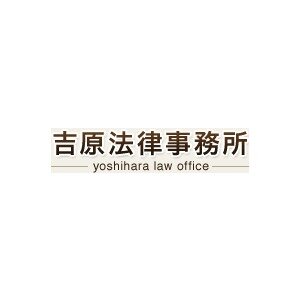Best Constitutional Law Lawyers in Sapporo
Share your needs with us, get contacted by law firms.
Free. Takes 2 min.
List of the best lawyers in Sapporo, Japan
About Constitutional Law in Sapporo, Japan
Constitutional Law in Japan, including Sapporo, the capital city of Hokkaido Prefecture, is based on the Constitution of Japan, also known as the "Postwar Constitution" or the "Constitution of Japan of 1947." This constitution is the fundamental law of Japan and includes the principles of popular sovereignty, respect for fundamental human rights, and the pacifist renunciation of war. The Constitution consists of the preamble, general provisions, renunciation of war, rights and duties of the people, the Diet (Japan's bicameral legislature), the Cabinet, the Judiciary, finance, and amendments. In Sapporo, constitutional issues are addressed within this legal framework, overseen by both local and national judicial systems.
Why You May Need a Lawyer
Individuals in Sapporo may need a constitutional lawyer for various reasons, such as challenging laws or government actions that may infringe upon constitutional rights, discrimination cases, or issues related to freedom of speech, press, and religion. Legal assistance is also often sought for understanding and navigating complex legal situations involving the Constitution, such as disputes over government powers, or conflicts between state and federal regulations. In cases where constitutional rights are thought to be violated, a lawyer specialized in constitutional law can provide advice, represent individuals or groups in court, and assist in protecting their legal rights.
Local Laws Overview
The local laws in Sapporo are subservient to the national laws of Japan, and any local regulations or ordinances must comply with the Constitution. Key aspects of local laws relevant to Constitutional Law include the application of human rights ordinances, laws related to local government operations, and the legal structure specific to Hokkaido Prefecture. However, constitutional disputes typically involve national legislation or policies and are taken up in the context of the national legal framework.
Frequently Asked Questions
What fundamental rights are protected under the Japanese Constitution?
The Japanese Constitution guarantees fundamental human rights, including equality before the law, freedom of speech, religion, and assembly, the right to property, the right to due process, and the right to maintain the minimum standards of wholesome and cultured living, among others.
Can the Japanese Constitution be amended?
Yes, the Japanese Constitution can be amended; however, the process is rigorous, requiring a two-thirds majority in both houses of the Diet and a majority of votes in a public referendum.
What is the role of the Supreme Court in the context of Constitutional Law?
The Supreme Court of Japan is the highest court with the power to determine the constitutionality of any law, order, regulation, or official act.
How are human rights violations addressed in Japan?
Human rights violations in Japan can be addressed through various legal measures, including filing a lawsuit in domestic courts. The Japan Federation of Bar Associations also provides assistance and guidance in human rights matters.
Can foreign nationals claim constitutional rights in Japan?
Yes, foreign nationals have the right to claim most of the constitutional rights in Japan, except for some that are explicitly restricted to Japanese nationals, such as the right to participate in public affairs.
How does one challenge a law or government action as unconstitutional?
To challenge a law or government action, an individual or entity usually files a lawsuit in a court with competent jurisdiction, which could ultimately lead to a ruling from the Supreme Court of Japan if escalated.
What is judicial review?
Judicial review is the process by which courts, especially the Supreme Court, review and, if necessary, invalidate laws and government actions that are not consistent with the Constitution.
Are there any restrictions on the rights and freedoms granted by the Constitution?
Certain rights and freedoms can be restricted by law for the sake of public welfare, maintaining public order, and securing the common good, as long as such restrictions do not violate the essential principles of these rights.
Is there a Constitution Day in Japan?
Yes, Constitution Day is a national holiday in Japan celebrated on May 3rd to commemorate the enactment of the Postwar Constitution.
What should one do if they believe their constitutional rights have been violated?
If you believe your constitutional rights have been violated, you should consult with a lawyer specializing in constitutional law to discuss your case and potential legal remedies.
Additional Resources
Individuals seeking legal advice in constitutional law in Sapporo can contact the Hokkaido Bar Association, which provides legal consultation services, including referrals to lawyers with constitutional law expertise. Another resource is the Supreme Court of Japan website, which offers information on the judiciary system and constitutional matters. For human rights issues, the Japan Federation of Bar Associations provides resources and support for people whose rights may have been violated.
Next Steps
If you need legal assistance in Constitutional Law in Sapporo, your first step should be to consult with a constitutional lawyer or a law firm specializing in constitutional matters. It is essential to document any potential violations thoroughly and be prepared to discuss the specifics of your case. Additionally, consider reaching out to local legal associations or human rights organizations for further guidance and support throughout the legal process.
Lawzana helps you find the best lawyers and law firms in Sapporo through a curated and pre-screened list of qualified legal professionals. Our platform offers rankings and detailed profiles of attorneys and law firms, allowing you to compare based on practice areas, including Constitutional Law, experience, and client feedback.
Each profile includes a description of the firm's areas of practice, client reviews, team members and partners, year of establishment, spoken languages, office locations, contact information, social media presence, and any published articles or resources. Most firms on our platform speak English and are experienced in both local and international legal matters.
Get a quote from top-rated law firms in Sapporo, Japan — quickly, securely, and without unnecessary hassle.
Disclaimer:
The information provided on this page is for general informational purposes only and does not constitute legal advice. While we strive to ensure the accuracy and relevance of the content, legal information may change over time, and interpretations of the law can vary. You should always consult with a qualified legal professional for advice specific to your situation.
We disclaim all liability for actions taken or not taken based on the content of this page. If you believe any information is incorrect or outdated, please contact us, and we will review and update it where appropriate.









